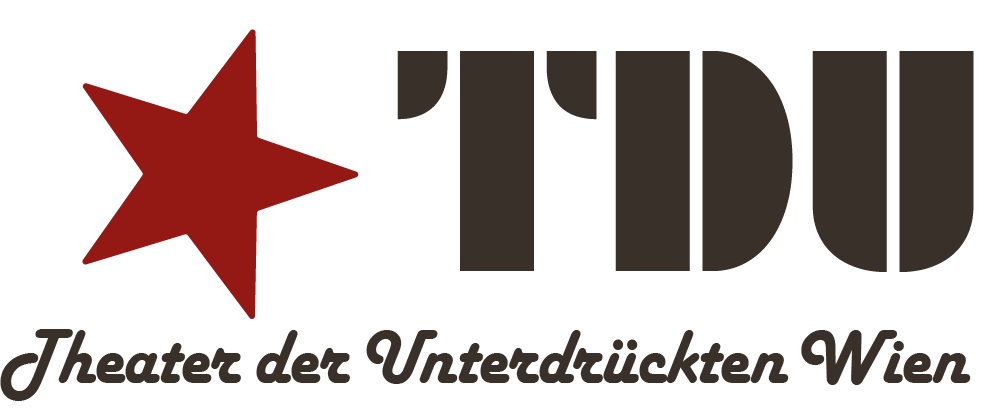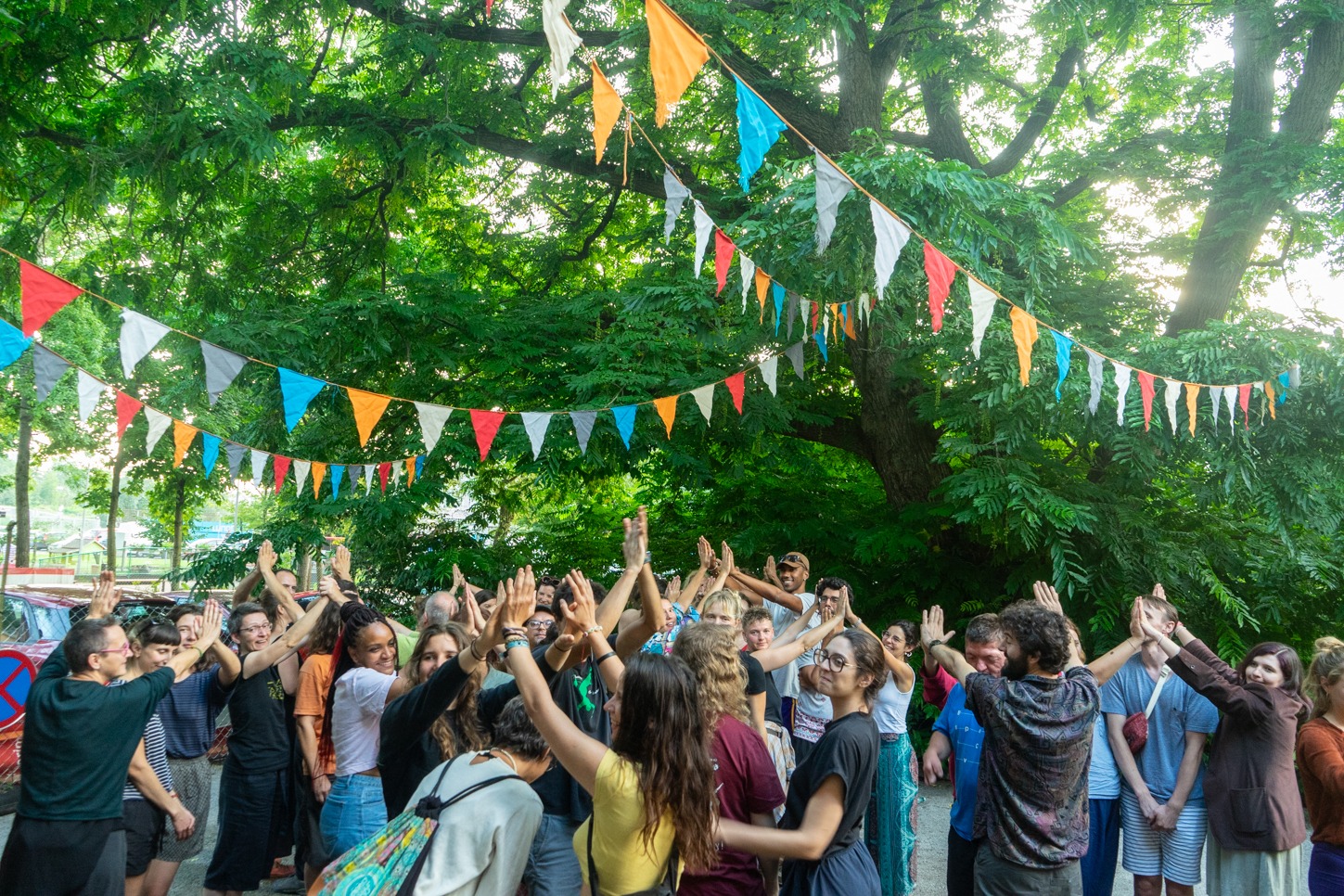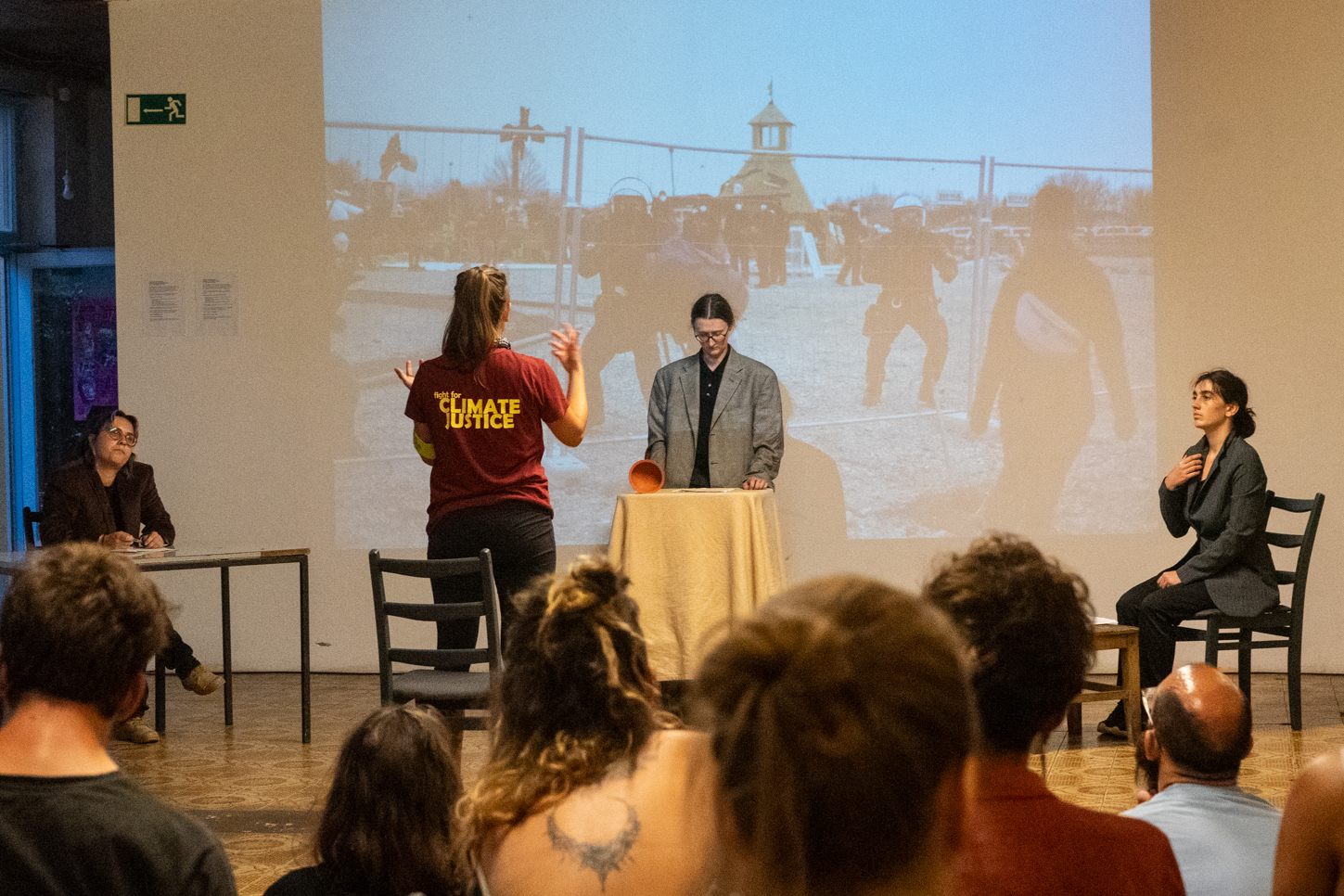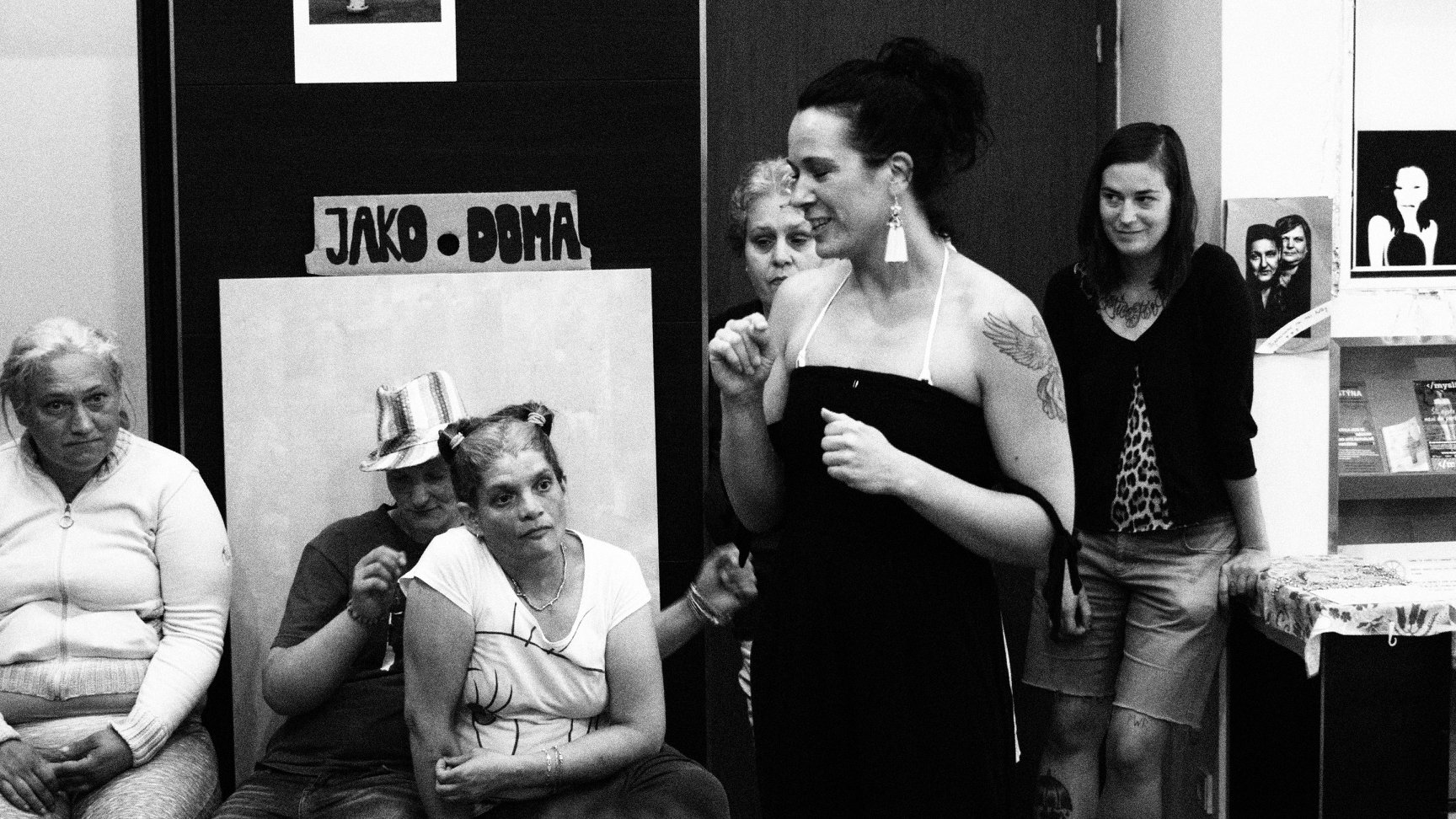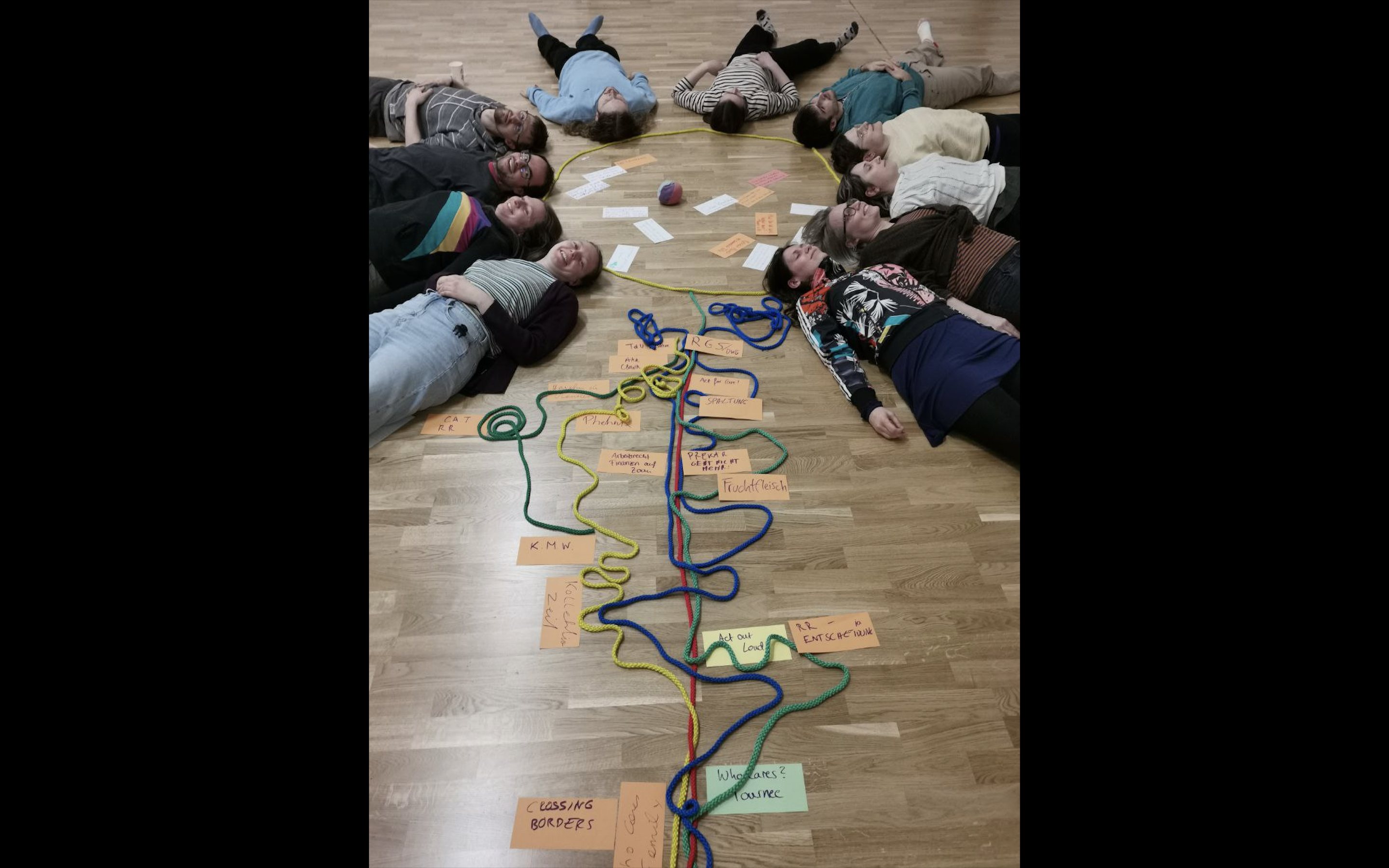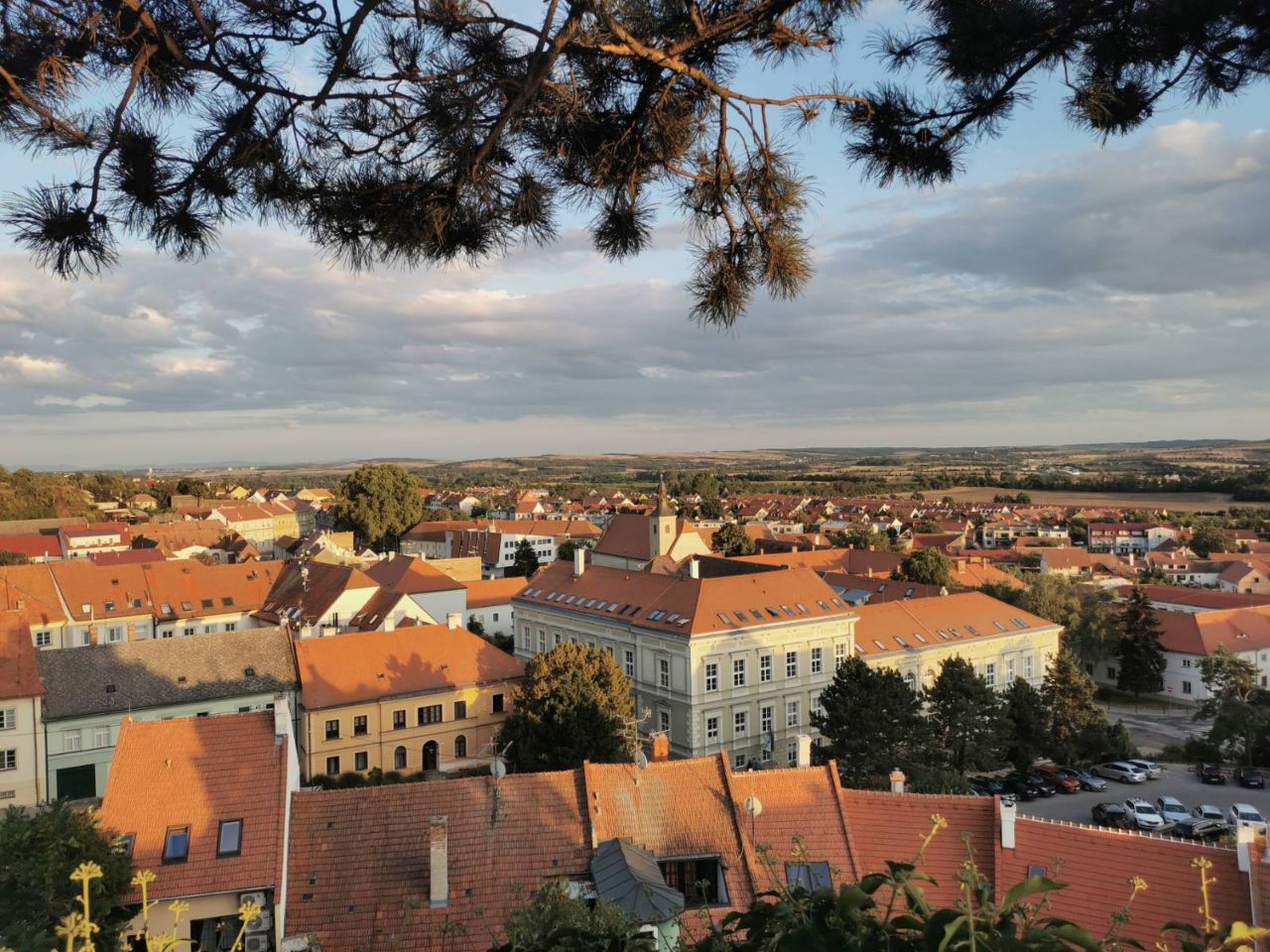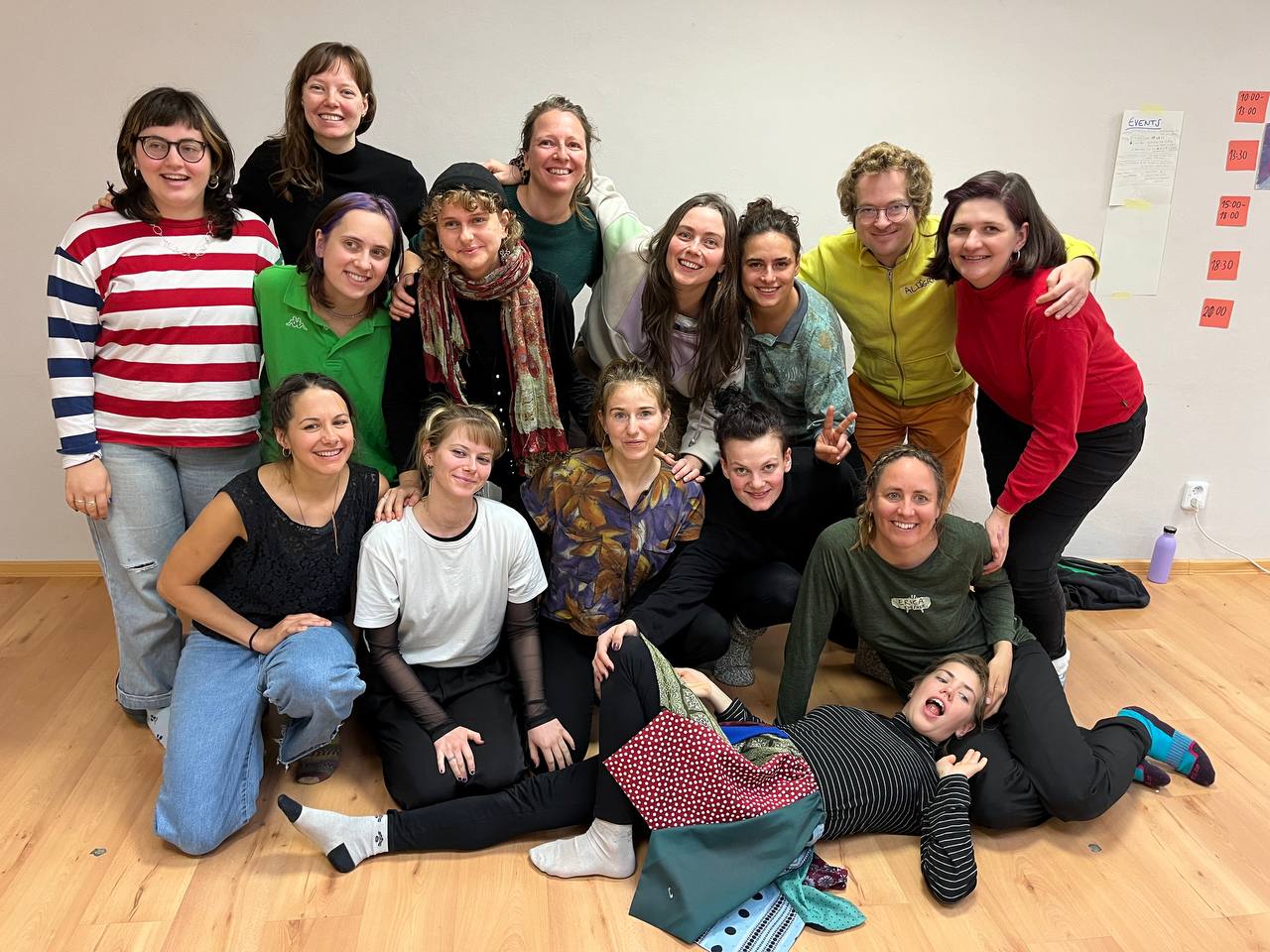Wir sind jetzt eine akkreditierte Organisation bei Erasmus+ in der Projektrunde 2021-2027. Mit unserem Erasmus-Plan verfolgen wir folgende Ziele
Ziel 1: Nachhaltige Organisationsentwicklung im TdU Wien sowie nachhaltige und regenerative Arbeit seines Personals
Ziel 2: Europaweite professionelle Netzwerke und Best Practice Austausch zu unseren Themenschwerpunkten schaffen
Ziel 3: Innovative Weiterentwicklung unseres theaterpädagogischen Angebots in der Erwachsenenbildung
Wir entsenden unsere Mitarbeitenden und Lernenden nach ganz Europa um sich im Sinne dieser Ziele weiterzubilden.

Beitragsfoto: Unsere erste Gruppenmobilität von Lernenden nach Slowenien (c) Ursa Rahne
Budget 2023
Das Non-Festival wurde am Mittwoch, dem 21. August 2024, mit einem Nachmittags-/Abendprogramm eröffnet. An den darauffolgenden Abenden wird es Forumsaufführungen von lokalen und ausländischen Gruppen des Theaters der Unterdrückten geben. Wir planen auch Aktivitäten von PLAC, das uns das zweite Jahr in Folge beherbergt. Das Non-Festival wird am Samstag, dem 24. August 2024, mit einer abschließenden, von allen Teilnehmern gemeinsam organisierten Theaterintervention im öffentlichen Raum gekrönt, gefolgt von der unverzichtbaren Abschlussparty.
The non-festival opened on Wednesday 21 August 2024 with an afternoon/evening programme. The following evenings will include forum performances by local and visiting Theatre of the Oppressed groups, and we are also planning to include activities by PLAC, which is hosting us for the second year in a row. The non-festival will be crowned on Saturday 24 August 2024 with a final theatrical intervention in a public space, jointly organized by all participants, followed by the indispensable closing party.
Foto (c) Henri Katz
In Tschechien hatten wir eine Learning Mobility mit dem Ziel: Erarbeitung eines immersiven Theaterstücks, das sich mit der Vergangenheit der teilnehmenden Länder auseinandersetzt und dabei einen Fokus auf die Zeit kurz vor und während des Nationalsozialismus legt. Dramaturgische, methodische und regietechnische Co-Leitung durch die tschechische Partnernorganisation und TdU Wien. Lernziel: Immersives Theater, Auseinandersetzung mit historischen Fakten und Bezug zu dem Heute (Rechtsruck in Europa) mit der Frage: was können wir aus der Vergangenheit lernen? Können und dürfen wir damals und heute unterscheiden?
In the Czech Republic, we had a learning mobility with the aim of developing an immersive theater play that deals with the past of the participating countries and focuses on the period shortly before and during National Socialism. Dramaturgical, methodological and directorial co-management by the Czech partner organization and TdU Vienna. Learning objective: Immersive theater, confrontation with historical facts and reference to the present (shift to the right in Europe) with the question: what can we learn from the past? Can and should we differentiate between then and now?
Im Rahmen der TdU Academy 2024 haben wir Liza Urbanova eingeladen. Sie leitete einen Workshop zum Thema:
Unter den Flügeln des Theaters
„Nicht jede Erfahrung, die wir im Leben machen, nicht alles, was uns widerfährt, kann anderen mit gemeinsamen Worten mitgeteilt werden. Und doch würde es so oft helfen, wenn die Menschen die Geschichten der anderen kennen würden, die ihren Lebensraum teilen – Klassenzimmer, Schule, Arbeitsplatz, Haus, Flure, Straßen, System, Sprache, Nation, Land, Kontinent, Planet, …. Wir würden besser leben, wenn wir mehr darüber wüssten, was sich hinter den Handlungen anderer verbirgt, woher sie kommen und was ihre Beweggründe sind, welche Emotionen damit verbunden sind und welche Folgen sie haben könnten. Wir würden besser leben, wenn wir unsere eigenen Geschichten erzählen könnten. Wir würden besser leben, wenn wir uns gegenseitig besser verstehen würden und wenn wir gemeinsam die Kraft nutzen könnten, die aus einem solchen Verständnis erwächst. Es scheint jedoch, dass manche Dinge in ihrer ganzen Tragweite mit gewöhnlichen Worten nicht erklärbar sind. Aber das bedeutet nicht unbedingt, dass sie nicht trotzdem erzählt werden können. […] Auf unserer gemeinsamen Reise werden wir nach Antworten suchen: Wie man einen sicheren Raum schafft, wie man mit Energie arbeitet, wie man mit dem Atem arbeitet, welche Möglichkeiten die Stimme, der Klang oder der Rhythmus haben, wie man den Körper sprechen lässt. Wie wir das Theatralische für uns kommunizieren lassen, wie wir daraus Kraft schöpfen und wie wir es für uns selbst nutzen können, um besser und sicherer mit dem realen theatrum mundi umzugehen. „ (Liza Urbanova)
As part of the TdU Academy 2024 we invited Liza Urbanova. She facilitated a workshop on the topic:
Under the wings of the theatre
„Not every experience we have in life, not everything that happens to us can be communicated to others with common words. Yet it would so often help if people knew the stories of others who share their living space – classroom, school, job, house, hallways, streets, system, language, nation, country, continent, planet, …. We would live better if we understood more about what lies behind the actions of others, what is it’s source and motivations, what emotions are attached to them, and what the consequences might be. We would live better if we could tell our own stories. We would live better if we understood each other better and if we could harness together the power that comes from such understanding. However it seems that some things are in their breadth inexplicable in common words. But that does not necessarily mean that they cannot still be told. […] On our journey together we will look for some answers : How to create a safe space, how to work with energy, how to work with breath, what are the possibilities of voice, sound or rhythm, how to let your body speak. How to make theatricality communicate for us, how to draw power from it, and how to use it for ourselfs to better and safely deal with the real theatrum mundi. “ (Liza Urbanova)
TRAUM-, VISIONS, STRATEGIEWOCHENENDE
Wir dachten über TdU auf vier Ebenen nach und ordneten verschiedene Themen/Aufgaben/Umstände/Herausforderungen in die folgenden vier Körbe ein – wobei wir uns am Sonntag auf
den Limitkorb konzentrierten:
SCHATZ – was sind die Ressourcen und positiven Eigenschaften von TdU, die für uns nahrhaft und wertvoll sind.
AKZEPTANZ – was sind Umstände/Themen, von denen wir meinen, dass sie nicht wirklich geändert werden können und akzeptiert werden müssen?
KOMPROMISS – Umstände/Themen, von denen wir das Gefühl haben, dass sie auf lange Sicht (im nächsten Jahr und darüber hinaus) angegangen und bearbeitet werden müssen.
LIMIT – Umstände/Probleme, die wir für sehr dringend und dringlich halten und die sofort angegangen werden müssen.
(Eva Bayomy)
DREAM, VISION, STRATEGY WEEKEND
We thought about TO on four levels and categorized different topics/tasks/circumstances/challenges into the following four baskets – focusing on Sunday on the limit basket on Sunday:
TREASURE – what are the resources and positive attributes of OP that are nourishing and valuable to us.
ACCEPTANCE – what are circumstances/issues that we feel can’t really be changed and need to be accepted?
COMPROMISE – circumstances/issues that we feel need to be addressed and dealt with in the long term (next year and beyond).
LIMIT – Circumstances/issues that we feel are very urgent and need to be addressed immediately.
(Eva Bayomy)
„Ich war als Workshopleiter bei der Bundestagung des Bundesverbands Theaterpädagogik eingeladen. Dabei war das Hauptthema eine barrierefreie und inklusive Theaterpädagogik. Toll war, dass auch Teilnehmende von theaterpädagogischen Angeboten (learners) darüber mitbestimmen konnten, was für sie Inklusion eigentlich bedeutet. In meinem Workshop ging es um strukturelle Barrieren im Zugang zu theaterpädagogischen Angeboten, Vereinen und Kulturarbeit im weiteren Sinne.[…] Die eigene Relevanz hinterfragen. Immer. Überall. Vogelperspektive einnehmen. Was wird wirklich gebraucht? Mit wem wollen wir in Gemeinschaft gehen? Wie kommen wir aus der doch aktivistisch bürgerlichen Bubble heraus? Wie hält uns die Angst vor dem anderen davon ab? […] Wer entscheidet, was Theaterpädagogik ist? Nur Pädagog:innen? Oder auch Teilnehmer:innen?“ (Joschka Köck)
„Die Tagung war sehr inspirierend und es gab ein spannendes Workshopangebot, das mir neues Handwerk für meine Arbeit und neuen Mut gegeben hat, neue Dinge […] Die Mobilität war aber sehr wichtig für das Netzwerken im deutschsprachigen Raum und neue Kontakte wurden geknüpft. […] Ich habe das Mischpult-Prinzip von Act e.V (Maike Plath) gelernt, das ich in meiner Arbeit anwenden kann, ich habe neue Formen von TdU kennen gelernt und wir haben uns viel zu Inklusion in der kulturellen Bildung ausgetauscht. Gleichzeitig war die Mobilität wichtig, neue Kontakte im deutschsprachigen Raum zu knüpfen und unser Netzwerk wurde ausgeweitet. […] Mit einer Person aus Dresden sowie mit dem Theater der Verrückten Berlin planen wir zukünftige Projekte, die Inklusion und Vielfältigkeit weiter etablieren“ (Linda Raule).
https://www.butinfo.de/aktuell
“I was invited as a workshop leader at the national conference of the Federal Association of Theater Pedagogy. The main topic was barrier-free and inclusive theater education. It was great that participants from theater education programs (learners) were also able to have a say in what inclusion actually means to them. My workshop was about structural barriers to access to theater education, associations and cultural work in a broader sense.[…] Questioning your own relevance. Always. Everywhere. Take a bird’s eye view. What is really needed? Who do we want to be in community with? How do we get out of the activist civil bubble? How does the fear of the other keep us from doing so? […] Who decides what theater pedagogy is? Only educators? Or also participants?” (Joschka Köck)
“The conference was very inspiring and there was an exciting range of workshops that gave me new skills for my work and new courage to try new things. […] the mobility was very important for networking in the German-speaking world and new contacts were made. […] I learned the mixing desk principle from Act e.V (Maike Plath), which I can use in my work, I got to know new forms of TO and we exchanged a lot about inclusion in cultural education. At the same time, the mobility was important to make new contacts in German-speaking countries and our network was expanded. […] We are planning future projects with a person from Dresden and with the Theater der Verrückten Berlin to further establish inclusion and diversity” (Linda Raule).
Logo:(c)Bundesverband Theaterpädagogik e.V.
Ein weiterer Sommer, eine weitere Ausgabe des Non-Festivals. Doch dieses Jahr sah alles ganz anders aus als in den Vorjahren. Zwei Wochen vor dem Non-Festival wurde Slowenien von schweren Regenfällen und Überschwemmungen heimgesucht. Große Teile des Landes standen unter Wasser, darunter auch unser geliebtes Gornji Grad, und verursachten enorme Schäden an der Infrastruktur und am Land. Wie Sie auf den Bildern unten sehen, ist das Gornji Grad, das wir kennen, kaum wiederzuerkennen und zu beschädigt, um das diesjährige Non-Festival auszurichten. Die slowenische Gruppe bewies unglaubliche Fähigkeiten im Krisenmanagement und schaffte es, das Festival innerhalb von weniger als zwei Wochen nach Ljubljana zu verlegen. Und so fand die 11. Ausgabe des Festivals in Ljubljana statt, im PLAC, einem besetzten Haus für kulturelle Veranstaltungen.
Ein weiteres Jahr, in dem sich TdU-Praktiker aus aller Welt trafen, stand in diesem Jahr unter dem Motto „Räume des Mutes“. Neben einem grundlegenden TdU Bilder & Forum Theater Track, waren die Gruppen eingeladen, ihre Forum-Performances mitzubringen und sie im Laboratory Track zu überarbeiten. An den Nachmittagen gab es verschiedene Workshops zu Maskentheater, Schattentheater und Improvisation. Das Abendprogramm war gefüllt mit Forum-Performances, die die TdU-Gruppen mitgebracht hatten, sowie mit verschiedenen Konzerten, Kabaretts und Improvisationen.
Another summer, another edition of the Non-Festival. But this year, things looked very different from previous years. Two weeks before Non-Festival was to take place, heavy rain and floods hit Slovenia. Large parts of the country were under water, including our beloved Gornji Grad, causing enormous damages to the infrastructure and land. As you see in the pictures below, the Gornji Grad we know is hard to recognise, and too damaged to host this year’s Non-Festival. The Slovenian group proved themselves with incredible crisis management skills and managed to re-locate the festival to Ljubljana within less than two weeks. And so, the 11th edition of the festival took place in Ljubljana, in PLAC, a squat for cultural events.
Another year of meeting TO practicitioners from all over, this years theme was Spaces of Courage. Next to a basic TO Image & Forum Theatre track, the groups had been invited to bring their Forum performances and re-work them in the Laboratory track. In the afternoons, there were various workshops on mask theatre, shadow theatre and improv. The evening program was filled with Forum performances the TO groups brought, as well as various concerts, cabarets and improv.
https://resilientrevolt.org/2023/08/11-non-festival-spaces-of-courage/
This group mobility activity offered a four-day immersive learning experience using Theatre of the Oppressed (TdU) methods to strengthen social and political engagement among adult learners. The training was designed for adult learners from diverse backgrounds, with a strong interest in social justice topics, such as climate change, anti-fascism, and anti-discrimination work. Participants engaged in a structured, interactive programme hosted by Centrum divadla utlačovaných in the Czech Republic, delivered through participatory theatre exercises, reflection sessions, and creative movement.
The programme focuses on the following key elements:
1. Empowerment through Reflection: Participants critically reflect on their social positioning, personal values, and motivations for activism through the session “My Place in This World”.
2. Skill Development through Practice: Learners practice improvisation and Theatre of the Oppressed techniques in hands-on workshops addressing real-world social challenges, helping them to develop practical facilitation skills and strategies for activism (“The Challenges”, “My and Our Power”).
3. Introspection and Emotional Awareness: Using the Rainbow of Desires method, participants explore personal fears, desires, and internalised oppression, fostering greater emotional intelligence and collective understanding (“Fears and Desires: Rainbow”).
4. Connecting Body and Political Expression: Participants engage in creative bodywork and movement sessions to explore the connection between physical expression and political engagement, strengthening their confidence and stage presence (“My Next Steps”).
5. Community Building and International Exchange: The activity promotes transnational dialogue, mutual learning, and best-practice sharing between Austrian and Czech facilitators and learners.
This activity directly supports the sending organisation’s objectives of organisational sustainability, international networking, and innovative pedagogical development.
Budget 2024
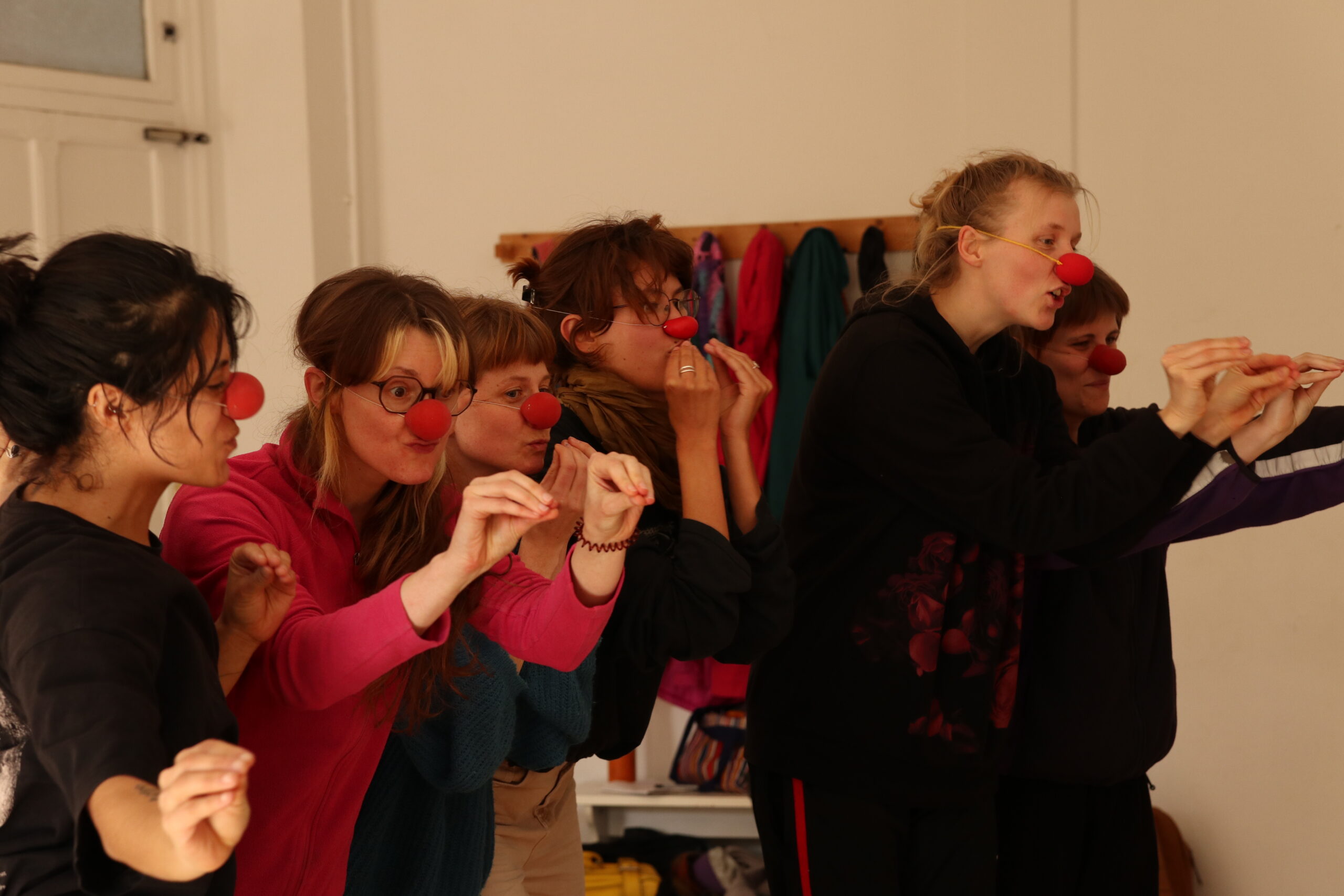
From 19 to 24 March 2025, a group of adult learners from TO Vienna participated in an intensive educational mobility programme in Valencia, hosted by Asociación Valentia Scientia. The participants, aged between 25 and 35, came from diverse educational and professional backgrounds and shared a common interest in performing arts—particularly clowning and street theatre—as tools for self-expression and civic engagement.
The training was designed to foster key educational outcomes such as collaborative learning, creative development, intercultural exchange, and critical reflection. Through a structured six-day programme, learners engaged in artistic, physical, and reflective activities that encouraged the development of both individual competencies and group cohesion.
Educational Content & Learning Process:
-
Days 1–2: Foundations of Group Learning
The learners began by establishing group agreements, shared values, and a collective framework for cooperation. Using playful and embodied methods—including icebreakers, vocal exercises, and movement work—they developed trust, communication, and awareness of group dynamics. A workshop on facilitation and collective care enabled participants to understand how group processes can be intentionally shaped to support learning and inclusion. -
Day 3–4: Thematic and Artistic Development
The educational focus shifted toward artistic creation grounded in social themes. Learners explored dramaturgy in clowning, using improvisation and physical theatre to investigate the emotional and symbolic dimensions of performance. Together, they selected a social issue to address and collaboratively devised a performance concept. Activities included documentation, research, and the creation of visual and performative elements (props, costumes, makeup), offering practical experience in transforming abstract themes into accessible public messages. -
Day 5: Public Clowning Performance
Learners implemented their knowledge by performing their co-created piece in a public space. This real-world application served as a culmination of the learning process, reinforcing skills in communication, group coordination, emotional expression, and interaction with diverse audiences. -
Day 6: Reflection and Educational Consolidation
The final day was dedicated to structured reflection. Through group discussions and individual feedback sessions, learners reviewed their educational journey, identified personal growth areas, and shared insights gained during the week. They also discussed possible future applications of their learning in community or educational contexts back home.
Pedagogical Methods:
-
Experiential learning through physical theatre and improvisation
-
Collaborative decision-making and group facilitation
-
Peer learning, storytelling, and exchange with local communities
-
Reflective practice to support knowledge integration
-
Real-life application through public performance
Educational Outcomes:
-
Strengthened facilitation and teamwork skills
-
Improved ability to use artistic tools for social expression
-
Greater intercultural competence and awareness
-
Enhanced confidence in public speaking and performance
-
Deepened understanding of collaborative creative processes
The mobility provided adult learners with a meaningful and transformative educational experience, empowering them to use performance as a medium for engagement, reflection, and community building. Supported by experienced facilitators, the learners gained not only technical skills but also valuable insights into the role of art in education and activism.
Lorem ipsum dolor sit amet, consectetur adipiscing elit. Ut elit tellus, luctus nec ullamcorper mattis, pulvinar dapibus leo.

